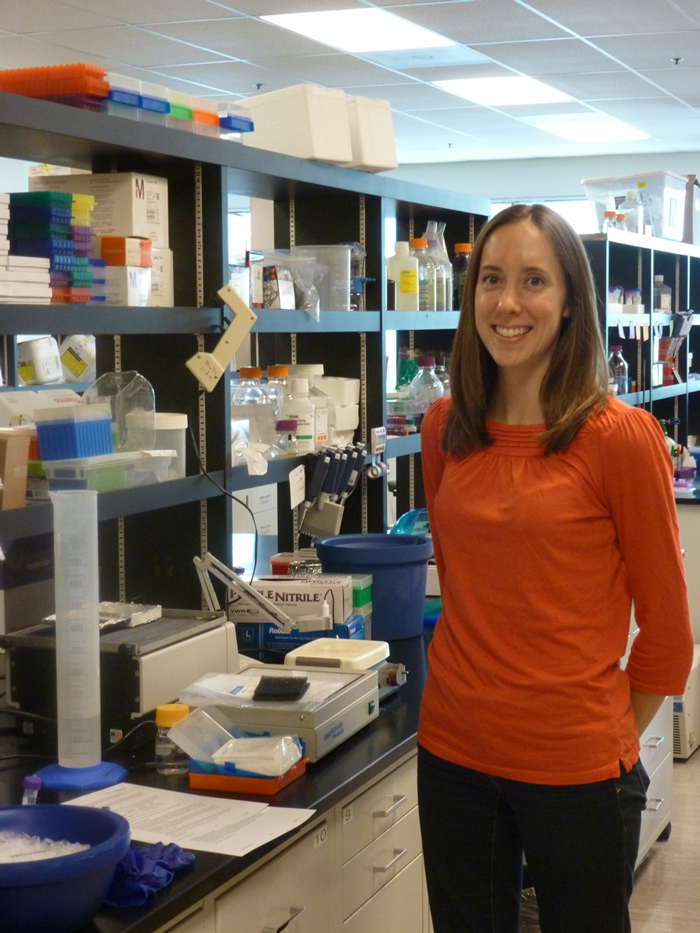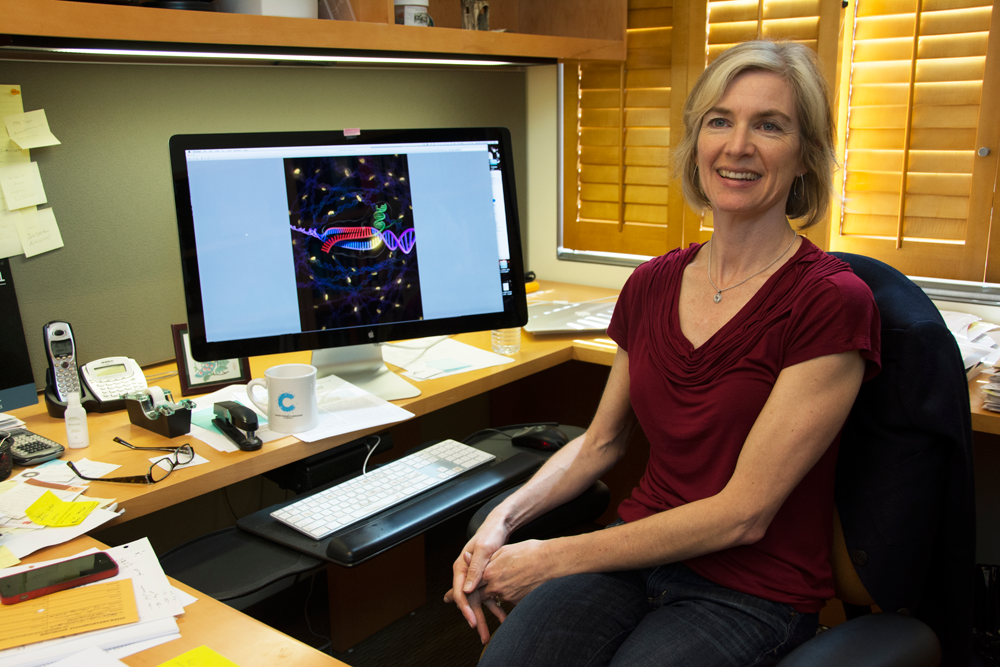 When Rachel Haurwitz joined UC Berkeley biology professor Jennifer Doudna’s lab in 2007 as a graduate student, little did the two women know that the interesting bacterial immune system they were studying would be the subject of news headlines and the basis for a biotech startup just a few years later. It turned out that the bacterial immune system they were studying, known as CRISPR (clustered regularly interspaced short palindromic repeats), has a whole molecular toolkit of enzymes that are useful for various applications. Using the protein crystallography capabilities at the ALS, Doudna and her team discovered that a protein in the CRISPR pathway can be harnessed to make precise changes to DNA, which is what has launched it into news headlines as a revolutionary genome engineering tool.
When Rachel Haurwitz joined UC Berkeley biology professor Jennifer Doudna’s lab in 2007 as a graduate student, little did the two women know that the interesting bacterial immune system they were studying would be the subject of news headlines and the basis for a biotech startup just a few years later. It turned out that the bacterial immune system they were studying, known as CRISPR (clustered regularly interspaced short palindromic repeats), has a whole molecular toolkit of enzymes that are useful for various applications. Using the protein crystallography capabilities at the ALS, Doudna and her team discovered that a protein in the CRISPR pathway can be harnessed to make precise changes to DNA, which is what has launched it into news headlines as a revolutionary genome engineering tool.

“Jennifer and I realized that not only was this a really exciting piece of biology, but there were some really obvious commercial applications,” says Haurwitz. “Some of the proteins had unique capabilities to bind or modify nucleuic acids, and we saw that there were going to be a class of commercial products based on those.”
In response, Haurwitz and Doudna, who is also a Howard Hughes Medical Institute Investigator, founded a company in 2011 to develop proteins from the CRISPR pathway for various applications. They launched Caribou Biosciences through the Bay Area-based QB3 Startup in a Box program, which provided them with initial advice and support. Doudna’s lab was also awarded QB3’s Bridging the Gap award, which addresses the funding gap that exists between NIH-based traditional research funding and startup commercial funding.
After launching Caribou, Doudna and her colleagues were working at the ALS and started looking at a class of enzymes in the CRISPR system, Cas9, that showed immense promise in genetic engineering. Cas9 has since become the cornerstone technology of Caribou. The company is currently at 10 employees and plans to reach 20 by the end of 2014. Caribou’s focus is on developing Cas9 for use in the drug development, agricultural biotechnology, and industrial biosciences fields through strategic partnerships with other biotech companies.
“Having the ALS available to us to be able to look at the molecular structures of these proteins has been absolutely critical for Caribou,” says Doudna. “Without a molecular understanding it would be impossible to do what we do.”

Doudna is currently the chair of Caribou’s scientific advisory board, helping the company formulate its scientific goals and focus, while her cofounder Haurwitz is the company president and CEO. Both women see a lot of potential for Cas9-based technologies and some very thoughtfully coordinated partnership opportunities in their future.
“It’s been a wonderful journey for me to see this company grow from literally nothing—not a dime of funding, and a grad student who was excited to take it on—to a company of 10 people that’s growing quickly and already has generated exciting data of their own,” says Doudna. “Over the next 6 to 12 months I think we’re going to see some really exciting developments coming from Caribou.”